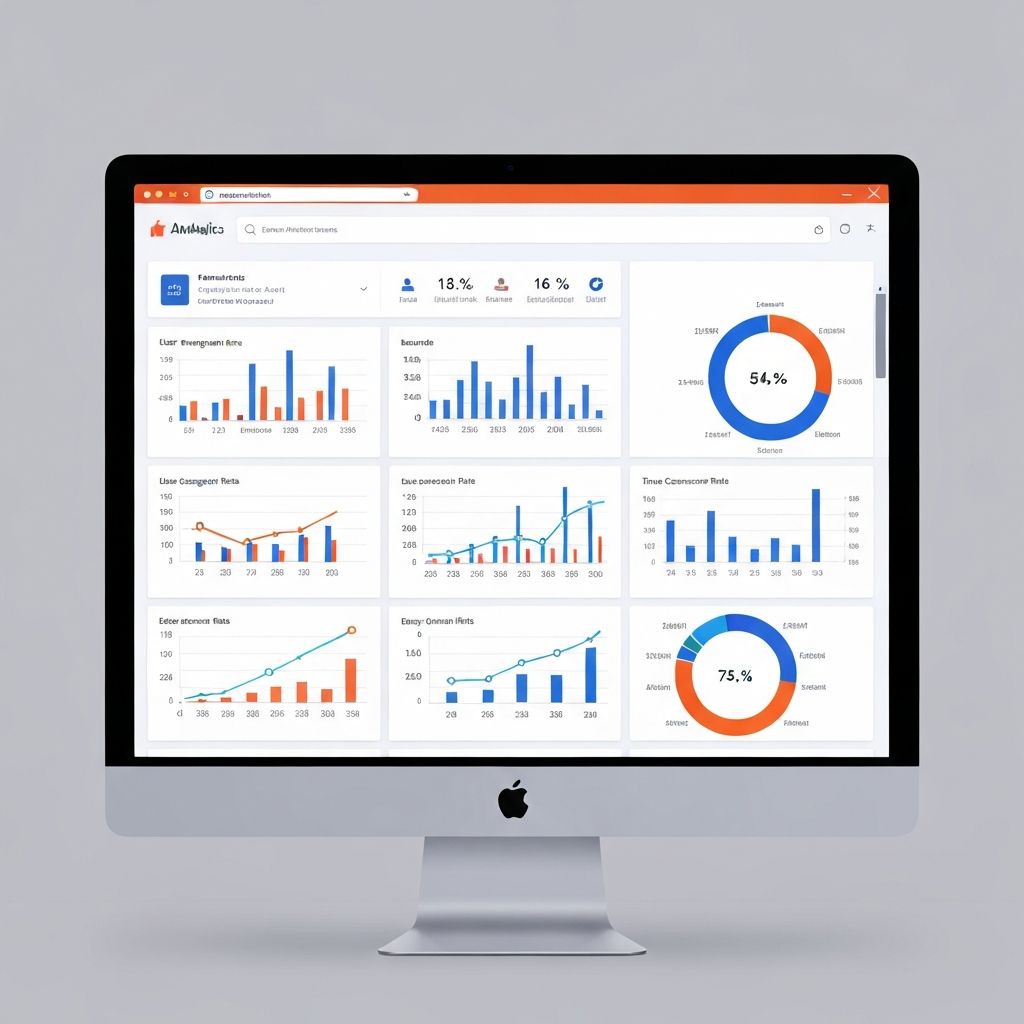Profesjonalne metody badań użytkowników dla Twojego biznesu
Kompleksowa baza wiedzy o metodach UX Research dla e-commerce, fintech, SaaS i przemysłu gamingowego. Weryfikowane zasoby, studia przypadków i praktyczne szablony.
Kompleksowy proces badawczy
Od planowania i rekrutacji uczestników, przez przeprowadzenie badań, aż po analizę danych i prezentację wyników. Stosujemy sprawdzone metodologie dostosowane do specyfiki Twojej branży.
- 1.Analiza celów biznesowych i pytań badawczych
- 2.Dobór odpowiednich metod badawczych
- 3.Realizacja badań i zbieranie danych jakościowych/ilościowych
- 4.Analiza wyników i formułowanie rekomendacji

Najpopularniejsze metody badawcze
Poznaj sprawdzone techniki stosowane przez wiodące firmy e-commerce i fintech

Testy użyteczności

Analityka danych

Wywiady pogłębione
Testy użyteczności
Ewaluacja produktów cyfrowych z udziałem rzeczywistych użytkowników
Wywiady pogłębione
Odkrywanie potrzeb i motywacji użytkowników poprzez rozmowy 1:1
Analityka behawioralna
Badanie wzorców zachowań użytkowników w produktach cyfrowych
Card sorting
Optymalizacja architektury informacji i nawigacji w e-commerce
A/B testing
Porównywanie wariantów rozwiązań i optymalizacja konwersji
Badania etnograficzne
Obserwacja użytkowników w naturalnym kontekście działania
Specjalizacje branżowe
Dostosowane metody badawcze dla różnych sektorów gospodarki

E-commerce
Optymalizacja ścieżek zakupowych i zwiększanie konwersji
Fintech
Badania w aplikacjach finansowych i bankowych
Gaming & Hazard
UX w grach i platformach hazardowych online
SaaS B2B
Badania w złożonych systemach biznesowych
Doświadczenie w branży hazardowej online
Współpracujemy z wiodącymi platformami kasyn online, dostarczając zaawansowane metodologie badań użytkowników dla gier hazardowych. Nasze ekspertyzy obejmują optymalizację doświadczeń graczy, testowanie mechanik gier oraz analizę zachowań w środowisku high-stakes.
Obszary współpracy z partnerami z branży kasynowej
Typy gier objętych naszymi badaniami
Automaty (sloty)
Popularne maszyny z bębnami i motywami tematycznymi — szybka rozgrywka z systemami bonusowymi.
Blackjack
Gra karciana polegająca na osiągnięciu sumy punktów możliwie bliskiej 21 bez jej przekroczenia; element strategii.
Ruletka
Gra oparta na obrocie koła i losowym wyniku; gracze obstawiają liczby, kolory lub przedziały.
Poker
Zestaw gier karcianych o różnych wariantach; łączy elementy umiejętności, strategii i psychologii.
Bakarat
Elegancka gra stołowa popularna w sekcjach VIP; gracze obstawiają, która ręka (gracza czy bankiera) będzie bliższa dziewięciu.
Kości (Craps)
Dynamiczna gra stołowa polegająca na obstawianiu wyników rzutu dwiema kostkami; pełna energii i emocji.
Badania przeprowadzane zgodnie z międzynarodowymi standardami etyki badań w przemyśle hazardowym oraz wymogami regulacji odpowiedzialnej gry.
Zapytaj o współpracę w branży gamingDlaczego UXRM?
Profesjonalna platforma z weryfikowaną wiedzą ekspercką
Doświadczenie praktyczne
Wszystkie metody opisane przez specjalistów z 10+ latami doświadczenia w prowadzeniu badań UX dla wiodących marek e-commerce i fintech.
Poznaj nasz zespół →Wiedza zweryfikowana
Każda publikacja weryfikowana przez minimum dwóch niezależnych ekspertów. Regularne aktualizacje zgodnie z najnowszymi standardami branżowymi.
Nasza metodologia →Autorytet w branży
Współpracujemy z uniwersytetami i organizacjami branżowymi. Publikujemy wyniki badań własnych i analizy trendów w UX Research.
Nasze publikacje →Transparentność
Jasne źródła informacji, pełna dokumentacja metodologii badawczej i transparentna polityka korekt oraz aktualizacji treści.
O platformie →Zacznij prowadzić profesjonalne badania UX
Dołącz do tysięcy specjalistów, którzy budują lepsze produkty dzięki metodom opartym na wiedzy eksperckiej